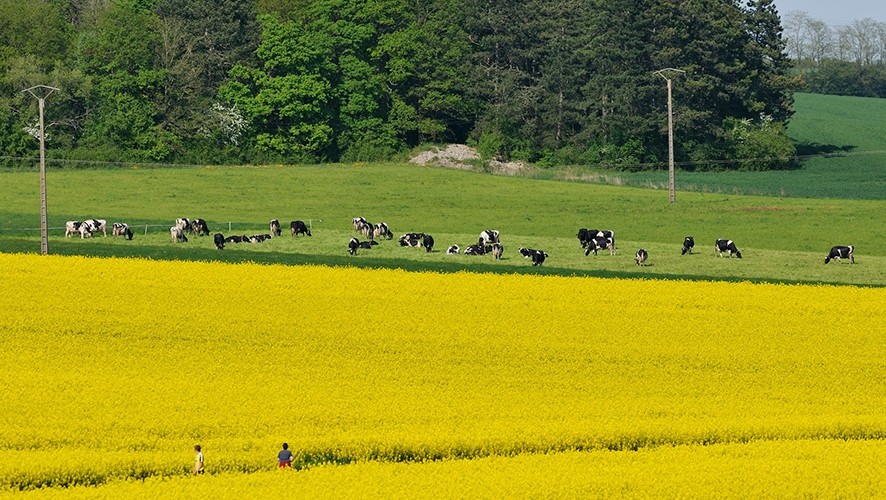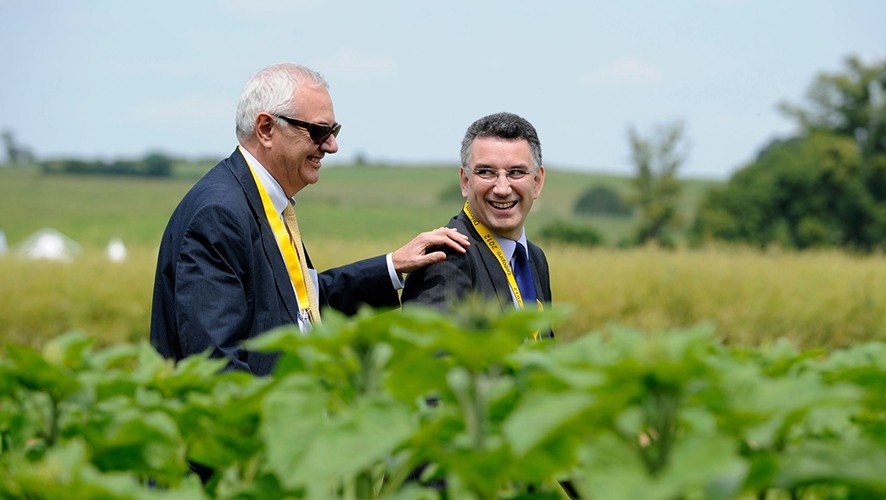2006-2015
Conquering new horizons
2007
Creation of two divisions for plant and animal activities
2008
Acquisition of Oleon to create the European leader in oleochemistry
Takeover of Générale Condimentaire, historic producer of Lesieur sauces and mayonnaises
2009
Launch of the BioTfueL project for second-generation biofuels
2010
Purchase of Expur and strategic foothold in Eastern Europe
2011
Start of participation in the P.I.V.E.R.T project for renewable chemical products.
Acquisition of Lesieur Cristal in Morocco, with new markets
2012
Presentation of the CAP 2018 strategic plan for sustainable and societal development
Arrival of Jean-Philippe Puig as CEO
2013
International development via the acquisition in Romania of the Untdelem de la Bunica and Olpo edible oil brands
Agreement with the Moroccan government to increase the land area used to grow rapeseed
Increase in the stake held in the egg brand Matines
A new structure in two Divisions: plant and animal activities
To secure one of the principal markets – animal nutrition- Sofiprotéol opted to become a majority shareholder in its new subsidiary Glon Sanders, with a 65% stake.
Two main divisions were thus created: the “Oilseeds Division” and the “Animal Products Division”. This enhanced the clarity of the subsidiary’s integration strategy, at the crossroads of the agricultural, food and environmental transitions.
Growth of the Group and international development
Stronger consumer food brands
As part of an ever-greater integration approach, in 2008 Sofiprotéol took over Générale Condimentaire. Situated in Grande-Synthe (north of France), it was the historical producer of Lesieur sauces and mayonnaises, made using rapeseed and sunflower oils. At the same time, in 2013 the Group increased its stake in Matines, specialized in eggs for the retail industry.
The turning point in renewable chemistry
In 2008, Sofiprotéol acquired the Belgian company Oleon and thus developed an important oleochemical cluster named Oleon-Novance, European leader in its field. There are many applications for the products of this plant-based and renewable chemistry, in agrifood, pharmaceuticals, cosmetics, paint or detergent.
At the same time, in 2011 the group embarked on the P.I.V.E.R.T project, alongside other industrial firms and research organizations. Initiated by the Institute for the Energy Transition, it focused on transforming biomass into renewable chemical products. The purpose was to use the entire plant and not just the seed, to make plant-based chemicals.
Conquering new markets: Eastern Europe and North Africa
Sofiprotéol focuses firmly on international development. By purchasing the Romanian company Expur in 2010, followed by the edible oil brands Untdelem de la Bunica and Olpo in 2013, the Group gained a firm foothold in the oilseed production basin of Eastern Europe and the Black Sea, one of the largest in Europe.
As part of the same international growth approach, in 2011 Lesieur acquired Lesieur Cristal, Moroccan leader of edible olive oils and seeds, as well as soap. This operation reinforced the Group’s role in structuring markets in the Maghreb region and also opened new markets for French rapeseed and sunflower producers.
At the same time, Sofiprotéol supported action to increase the land area for growing rapeseed and sunflowers on the other side of the Mediterranean, particularly with supply contracts from the Lesieur Cristal production facility. The Group thus obtained an agreement with the Moroccan government in the context of the Green Morocco Plan.
BioTfueL, towards second-generation biofuel
In 2009, the BioTfueL project for the production of second-generation biofuels was launched, supported by the ADEME (French Environment and Energy Management Agency). The ambition was to produce a biofuel directly usable by conventional vehicles by using the non-edible part of plants: straw, wood and plant waste. A pilot unit was set up for this purpose at the Group’s site in Venette (northern France).
CAP 2018, a strategic sustainable and societal development plan
Looking to the future, Sofiprotéol involved industry professionals in the development of an ambitious strategic plan: CAP 2018. It was presented in 2012 and defined the growth avenues for 2018, giving particular importance to sustainable development and corporate social responsibility.
In the same year, Jean-Philippe Puig handed the baton over to Philippe Tillous-Borde. With a background in the aluminum industry, this engineer with experience in international firms worked alongside Xavier Beulin at the head of a Group with a new scope.



